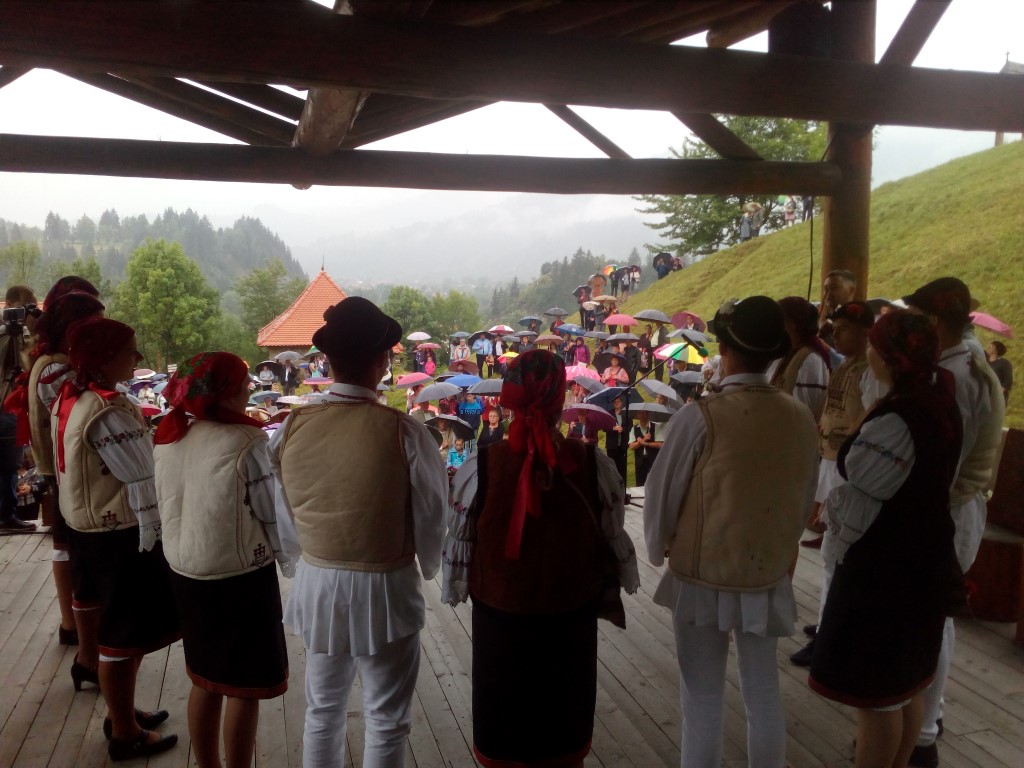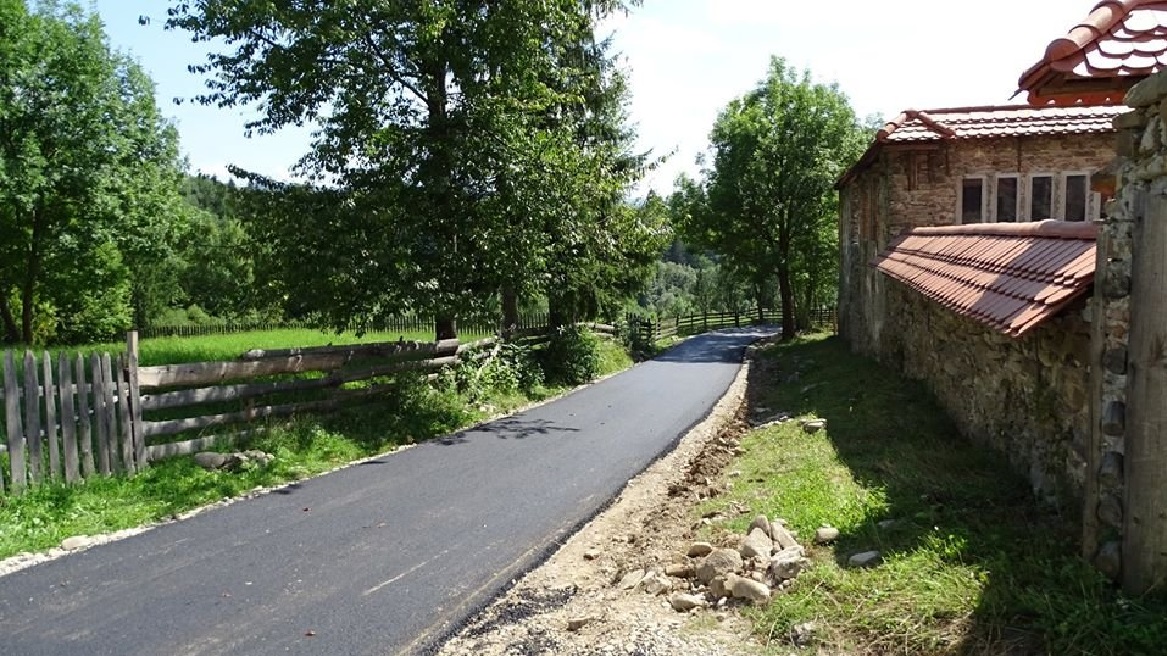This year’s Assumption Day Pilgrimage was held in the pouring rain on Saturday in Gyimesbükk (Ghimeș-Făget). And the road nearby the thousand-year-old border (of Hungary), leading to the church of Kontumác (Contumaţ), was paved with asphalt for the feast — a happy surprise for the locals.

The mass of this year’s Assumption Day Pilgrimage in Gyimesbükk was concelebrated by the trustee of the Gyulafehérvár (Alba Iulia) diocese Stelian Veres, who has Csángó roots, as his parents were born in Lujzikalagor (Luizi-Călugăra),
According to the pandemic regulations, social distancing was maintained by the several hundreds of pilgrims gathered outside of the Gyimes valley church on Saturday at noon; but neither these rules nor the pouring rain could dissuade them from participating in the traditional Assumption Day Pilgrimage.
Veres spoke about the role of the Virgin Mary within the Roman Catholic Church, our worship towards her and the example she set. At one part of the sermon, he brought up the last days of the king who founded the Hungarian state, Saint Stephan, who offered his country to the Virgin Mary, which is how Hungary became Regnum Marianum, the Kingdom of Mary.
At the end of the Holy Mass, the principal of the Dani Gergely Elementary School, Etelka Antal, greeted the 18-year-old youngsters of Gyimesbükk. The youth of this Transylvanian settlement, which was annexed by force from Szeklerland to Moldova 70 years ago, played music on violins and gardons (a traditional Csángó instrument similar to the cello) and gave a dance performance as well.

A pleasant surprise for the pilgrims was that the road between the highroad no. 12 and the Kontumác church was paved for Assumption Day.
Gyimesbükk Vicar József Salamon told szekelyhon.ro that the original plans did not include the modernization of this section of road, which is a few hundred meters long. But since the required machines were already working in the village, he was able to convince the contractor to pave the Kontumác road-section as well. The village did have to take out a loan to finance the new asphalt, “but I believe in the kind and wealthy people and that they will donate and we will be able to pay for the construction works,” said the vicar.
Title image: Asphalt on the road leading to the Kontumác church. (Photo: József Salamon)